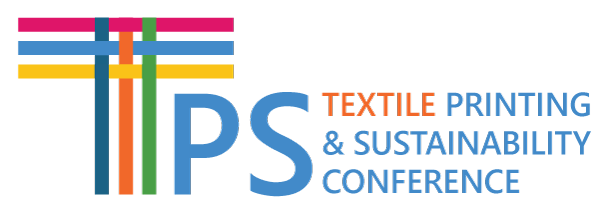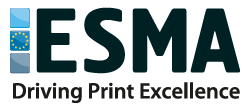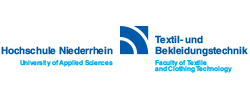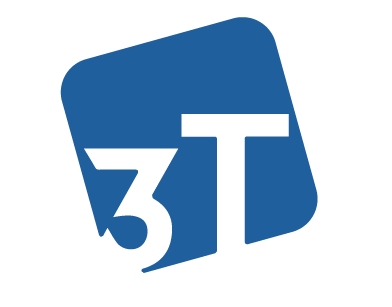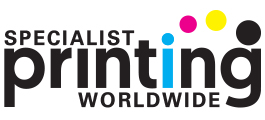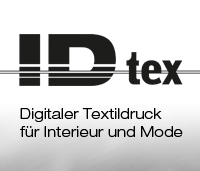We are currently collecting submissions for TPS 2026. Check our Call for Papers here. See below the 2024 programme as a reference.
09:00 am
TABLETOP NETWORKING WITH COFFEE
09:00 am
10:00 am
CONFERENCE INTRODUCTION
Peter Buttiens, Thomas Poetz, ESMA
10:30 am
KEYNOTE: SAFE AND SUSTAINABLE CHEMISTRY AND DIGITAL PRODUCT PASSPORT
While megatrends like digitalisation and artificial intelligence are keeping the world in suspense, companies are also overwhelmed by increasing regulatory pressure in the wide field of sustainability. Even smaller enterprises are obliged to publicly report on their sustainability practices and to disclose verified sustainability and impact data on product level as part of fulfilling their legal obligation. Generic green claims like ‘reduced water and energy consumption’ and ‘free of hazardous chemicals’ will need to be supported with verified data from independent and qualified third parties. In the textile supply chain using the right chemicals is a crucial step in compliance and sustainability management. This talk will give an insight into what it takes to assess, quantify and visualise the sustainability performance of a chemical product throughout its lifecycle. Together with the organizations SCTI and ZDHC, bluesign is in preparation to launch an industry accepted assessment scheme for better chemicals on an aspirational level. Building on its strong chemical and textile expertise with a long history of in-depth on-site company assessments, bluesign is going to service the textile industry with solutions for the digital product passport (DPP) requirements. We will introduce how bluesign is preparing companies for the recently launched ESPR (Eco-Design for Sustainable Product Regulation).
Dr Daniel Waterkamp, bluesign
10:30 am
11:00 am
KEYNOTE: ECODESIGN FOR SUSTAINABLE PRODUCTS REGULATION
Regulation (EU) 2024/1781, the framework for Ecodesign Requirements for Sustainable Products Regulation and its intended Delegated Acts on specific product sectors (uses) like textiles, is one of the most important regulatory activities of the EU authorities. It has the potential to fundamentally change the textile business in the EU. The presentation will show the intentions and aims of ESPR and summarise its key elements: eco-design and performance requirements as well as information requirements and high-level settings of the Digital Product Passport (DPP). Labelling and obligations for economic operators including conformity of products will be addressed, too. Finally, the timeline for developing delegated acts for specific product sectors, focusing on textile use, will be given.
Andreas Bayer, Tegewa
11:30 am
TECHNOLOGY AND SOLUTIONS: INKS AND CHEMISTRY
INNOVATION IN PIGMENT INK TECHNOLOGY FOR DIGITAL TEXTILES
As the textile industry prioritises sustainability, digital printing with pigment inkjet ink is emerging as a crucial alternative to other processes. This presentation examines the current and future advancements of pigment ink technology in digital textile printing. It will explore the latest developments in pigment technology and identify areas where continued innovation is needed, particularly to meet the demands of fashion applications. An innovation wish list will be outlined to propel pigment ink technology forward, assessing the feasibility of fulfilling these requirements to meet market needs. Expert insights will be provided into the efforts ink companies are making to address these challenges, examining innovative approaches and balancing various technical requirements.
Iris Coe, Fujifilm Ink Solutions
EMPOWERING SUSTAINABILITY: BRENNTAG’S ROLE IN SAFER AND SUSTAINABLE TEXTILE PRINTING INNOVATION
This presentation demonstrates the role of Brenntag as distributor and vital partner in supporting the textile printing industry towards a more sustainable future. By focusing on four key sustainability areas we highlight how our curated selection of low-carbon materials directly contributes to reducing the industry’s reliance on fossil fuels. In addition, our commitment to providing safer alternatives to hazardous substances ensures both consumer safety and environmental protection. Our unique position as a circular economy matchmaker enables us to connect different sectors within the industry, facilitating a seamless transition towards more sustainable practices. Lastly, our CO2 management services offer tailored solutions for companies looking to minimize their carbon footprint. This presentation underscores the Brenntag’s crucial role in not only supplying innovative products and services but also in offering the support and expertise necessary for the textile printing industry to achieve its sustainability goals. Join us to discover how we can work together to forge a safer, more sustainable future.
Annika Herbst, Brenntag
NEXT GENERATION RAPID LOW CURING SYSTEM
In this presentation, a groundbreaking solution to three pivotal challenges in plastisol ink technology is unveiled: chemistry, application, and analytical hurdles. The industry is revolutionised by the achievement of rapid curing at low temperatures with minimal dwell time. The innovative system combines a unique blend of low temperature curing resins. A novel rheometry test method for precise cure level determination is introduced, alongside comprehensive application testing using a meticulously designed experiment. Efficiency and performance in plastisol ink curing are redefined in this endeavour.
Ren Ivins, Avient
11:30 am
12:30 pm
TABLETOP NETWORKING WITH LUNCH
14:30
KEYNOTE: POLYSACCHARIDE-BASED SCREEN PRINTING INKS
Innovations are essential for the development of a modern circular economy. The ‘PiColor’ and ‘PiColor Spin-off’ project focusses on the investigation and development of environmental friendly, sustainable and biodegradable screen printing inks coloured with plant-based pigments for textile and paper printing. The greatest challenge is to expand the available colour range with inks having good light and wash fastness, optimal shear behaviour, mechanical properties and good adhesion. Cooperations with industrial partners enable the development of inks that comply industrial requirements. Meanwhile, promising results are achieved, which give the opportunity to create products with lower fastness requirements, such as bags and packaging.
Dr Judith Deriu, University of Innsbruck
14:30
15:00
KEYNOTE: TEXTILE PRINTING IN EDUCATION AND TRAINING: CHALLENGES AND FUTURE PROSPECTS FOR THE INDUSTRY
Textile training is facing major challenges, including in the field of textile printing. Technological advances, such as digitalisation and automation, are fundamentally changing the requirements for career starters and skilled workers. Traditional training content is often no longer sufficient to meet the complex requirements of modern production. This presentation examines the current challenges in training and makes suggestions as to which qualifications and competences will be necessary in the future. A focus will be on the integration of innovative technologies into the curriculum, the teaching of digital expertise and increased cooperation between industry and educational institutions. Possible solutions will also be discussed in order to future-proof textile training across national and international borders and to increase the competitiveness of the industry. The lecture is aimed at industry representatives, mechanical engineers, chemical companies and research institutes and invites a joint discussion on the future direction of training in the textile sector.
Stefan Schmidt, Association for Finishing, Yarns, Fabrics and Technical Textiles
15:30
TECHNOLOGY AND SOLUTIONS: INKS AND CHEMISTRY
JOURNEY TO SUSTAINABLE CARBON BLACK PIGMENTS FOR PRINTING SYSTEMS
Versatile approaches are available delivering sustainable carbon black pigment solutions to the printing ink world. Sustainability-linked projects in carbon black operations, e.g., decarbonisation, circular economy and especially R&D activities oriented on the need to significantly reduce CO2 emissions are running to improve yield and efficiency by use of alternative feedstocks, fuels and production technologies. The presentation reflects the newest progresses for sustainable carbon black solutions based on renewable sources as well as recycled carbon blacks prepared by tire pyrolysis oils derived from end-of-life tires.
Thomas Weprich, Orion
SUSTAINABLE AQUEOUS WHITE PIGMENT CONCENTRATE FOR PRINTING APPLICATIONS
The share of digital printing technologies is significantly increasing with double digit growth numbers. There is an increasing necessity for white TiO2 pigments, primarily in textile and packaging applications. Especially in DTG and DTF textile applications, printing white based on KRONOS 9900 exhibits highest opacity and whiteness on dark substrates. The pigment dispersion was developed to fulfill the highest level of technical requirements, a short filtration time and excellent storage stability. The unique manufacturing process of K9900 contributes to an overall energy reduction compared to regular available titanium dioxides. It is also TMP/TME-free. This facilitates the use in inks which must comply to Swiss Ordinance and Nestle Guidance.
Alexander Krause, Kronos
OEKO-TEX® CERTIFICATES AND PRODUCT LABELS: SHAPING A SUSTAINABLE FUTURE IN COLLABORATION WITH DIGITAL PRINTING
Action is required now to shape a sustainable future. What goes in, must come out. Chemicals and dyes used in the digital printing of textiles are not typically food grade quality, nor do they have pharmaceutical purity. Impurities and harmful substances found in textiles, foams, adhesives, prints, metal items and other components of apparel, footwear, and home goods can have a negative impact on worker and consumer health. If chemicals used in production do not remain in or on the product, they are released into the environment during manufacturing or consumer use. Either result can harm humans and ecosystems. This presentation will consider the above in the context of the European Green Claims Directive and combating greenwashing focusing on digital printing.
John Murphy, Hohenstein
15:30
16:30
TABLETOP NETWORKING WITH COFFEE
17:15
TECHNOLOGY AND SOLUTIONS: LATEST RESEARCH AND SUBSTRATES
NEW SUSTAINABLE SOLUTIONS IN TEXTILE PRINTING USING PHA AND PLA BASED INKS
This presentation showcases two cutting-edge solutions to use biopolymers as printing inks on textiles: a novel plastisol type of PHA ink and a water-based dispersion of PLA. These bio-inks offer not only technical advancements, but also pave the way for a greener future in textile production. From their formulation to practical applications, we explore how these materials embody the future of textiles, offering biodegradability, minimizing microplastics, and reducing environmental footprint. Join us on a journey through the colorful possibilities and responsible practices of textile printing with PHA and PLA inks.
Brecht Demedts, Centexbel
CELLULOSIC AND NATURAL FIBER NONWOVEN AS FULLY SUSTAINABLE PRINT MEDIA
Get rid of plastic. Norafin's Extra Organic brand sets a new standard in the world of sustainable living with its linen materials derived from eco-friendly sources. Our commitment to making a positive impact on both your living space and the environment began over 20 years ago when we revolutionised the nonwoven market as the first company to produce nonwovens exclusively from natural materials. Our innovative transformation of flax fibers into a tear-resistant, ecological wallcover boasts impressive features such as high UV resistance, heat insulation, and sound-absorbing properties. The natural components of flax and viscose promote a healthy indoor climate and are biodegradable. Unlike traditional nonwoven wallcoverings, Norafin's flax wallcover does not require a carrier material and can be directly applied to the wall using flax wallcover adhesive. Join Norafin in making a difference for the better with our sustainable and high-performing linen solutions as your new print media.
Tim Natzschka, Norafin
ECO-FRIENDLY AND BIO-DEGRADABLE BANNERS FOR SOFT SIGNAGE PRINTING
Soft signage polyester banners, commonly used for advertising and promotional purposes, typically end up in landfills after use, where they contribute to environmental pollution due to their non-degradable nature. Normal polyester takes centuries to break down, releasing microplastics into the ecosystem and negatively impacting soil and water quality. Recent advancements in biodegradable banner materials offer a promising alternative. These biodegradable banners degrade naturally over time, minimising the accumulation of microplastics in landfills and oceans. Importantly, they maintain the same high performance as traditional polyester banners, offering comparable durability, print quality, and flexibility for signage applications. The switch to biodegradable materials significantly reduces environmental harm without sacrificing the product’s utility, making them a sustainable and eco-friendly solution for the future of the signage industry. This innovation is a vital step towards reducing plastic waste and fostering a more circular, responsible economy.
Lieven Tack, Balta-Captiqs
17:15
18:30
NETWORKING RECEPTION
08:30 am
TABLETOP NETWORKING
08:30 am
09:00 am
KEYNOTE: NAVIGATING THE FUTURE OF PRINT – TEXTILES AND DECORATIVE SURFACES: MARKET SHIFTS, TECHNOLOGIES AND APPLICATIONS
Technology is advancing at pace, and with each innovation, iteration and scientific advance the industry continues to shift (or lurch) forward towards a digital future. Let’s take a deep dive into the latest disruptive technologies and the shifting behaviours that will force a seismic rewire of the textile and surface decoration marketplaces. Focussing on the transformative impact of technology for markets, manufacturers and consumer behaviours across the supply chain – we will explore the vendor chain from design to production and hope to fuse and evoke and consciously spotlight the necessary strategic global partnerships that must be enabled if we are to build and implement a seamless, circular digital textile industry.
Debbie McKeegan, Texintel
09:30 am
KEYNOTE: THE TRENDS AND CHALLENGES AHEAD FOR DIRECT-TO-FILM (DTF)
It’s been a few years since DTF entered the market only to be met with scepticism by most ‘in the know’. However, with trade show floorspace being dominated by stands sporting DTF, and the rush of blue-chip vendors entrants, DTF shows no sign of slowing down. Its low entry costs, versatile substrate support, new business opportunities and improving performance stability are all positive factors that look set to drive this technology at double-digit CAGR rates for years. In this presentation we look at some of the findings from the industry’s first comprehensive DTF global market tracker research study. However, while growth potential looks very attractive, it is not all rainbows and unicorns. We will discuss some of the key hurdles surrounding the industry including improved sustainability, promises of powderless technology, greater automation and CMYK+ enhancements that still need to be addressed as DTF looks to continue maturing as an industry.
David Sweetnam, Keypoint Intelligence
09:30 am
10:00 am
TECHNOLOGY AND SOLUTIONS: HARDWARE AND WORKFLOW
FROM TREND TO REALITY IN LESS THAN 30 MINUTES
The traditional supply chain and complex planning structures mean that fashion brands can no longer compete against new, very agile competitors. We will show how Kornit Digital technology can pick up trends within half an hour. This not only makes fashion brands faster and more profitable, but also more sustainable.
Steffen Meiler, Kornit
THE CHANGING PARADIGMS IN THE TEXTILE INDUSTRY: FAST FASHION, INDIVIDUALISM AND SUSTAINABILITY
Most of our current economic and individual practices, i.e. our current lifestyles, undermine the prosperity of future generations. Against this background, this presentation will zoom in on the relationship between sustainability, the textile industry, and individualism. This relationship is complex, multifaceted and with various interconnected factors at play. On the one hand, fast fashion often caters to individualistic desires for uniqueness and trendiness. Simultaneously, there is a growing movement towards sustainability that challenges the conventional environmental and social impact of the industry. It becomes clear that individual choices and industry practices have a great influence in creating a balance between expressing personal style and promoting sustainable and ethical practices. This interconnection will be elaborated by focusing on the evolution of the garment industry, consumer behaviour and individualism, social media and influencer culture, the sustainability impact of the garment industry and the changing paradigms in the industry.
Regina Wilhelm and Maike Joeken, Brother
PIONEERING SUSTAINABILITY THROUGH DIGITAL PRINTING WITHIN THE TEXTILE INDUSTRY
Mimaki is exploring the current state of the textile industry and its detrimental environmental effects – from the million tons of textile waste to the trillion liters of wastewater connected to the textile production – to highlight the urgency for sustainable alternatives. We will examine the role of digital printing technology in driving forward sustainability in the textile industry. New Mimaki developments are about to especially reduce the use of water during textile production and explore the possibility of recycling in larger quantities.
Benjamin Bley, Mimaki
11:00 am
TABLETOP NETWORKING WITH COFFEE
11:00 am
11:30 am
KEYNOTE: CHALLENGES AND THE FUTURE OF GARMENT QUALITY
Fast fashion and media influence result in a decline of the clothing quality, often at the cost of sustainability and craftsmanship. The demand for speed and volume compromises material selection and construction standards, negatively affecting both durability and environmental impact. Could a shift to local production restore quality and transparency in supply chains? Or should we fully embrace slow fashion that priorities longevity and responsible production? Meaningful change requires collaboration between brands, policymakers, and consumers to value materials and craftsmanship, and appreciating the original protective essence of clothing.
Samira Lafkioui, Polygonal
12:00 pm
KEYNOTE: THE ESSENCE OF CIRCULARITY
The presentation introduces the environmental challenges leading into the core concepts of the circular economy as a sustainable alternative to the traditional linear 'take-make-dispose' model. It explains how the circular economy seeks to redesign material flows and business models to create closed-loop systems, minimising waste and preserving resources. Key principles such as maintaining the value and utility of materials through reuse, repair, and recycling will be highlighted. Real-world case studies demonstrating how businesses are adopting circular practices for both economic and environmental benefits will be presented. Moreover, challenges and opportunities will be shown, emphasising the need for collaboration between industries and governments to support circular economy initiatives.
Dr Mohammad Chehade, RWTH Aachen
12:00 pm
12:30 pm
TECHNOLOGY AND SOLUTIONS
THE FABRIC OF THE MARKET: WHAT IS THE COST OF A MISSING NOZZLE?
OEM printer builders are changing the way they approach the digital textile market. The focus is now on single-pass systems rather than scanning machines due to a fall in the cost of high dpi printheads coupled with the requirement for increased throughput. The transition to single-pass is not without issues but there are constantly evolving tools and techniques to overcome these hurdles.
Juan Montero, Meteor Inkjet
A NEW VIEW ON SUSTAINABLE DIGITAL TRANSFER TEXTILE PRINTING
Ron Sportel will offer a new perspective on sustainable textile printing with transfer paper. What is really the impact and what are the environmental advantages of sustainability? Can manufacturers contribute to that by leveraging new innovative technologies? Sustainability is not just a single practice; it is a core value shaping products, processes, and company culture. Ron dives into the technical aspects of achieving this in textile printing, focusing on waste reduction, carbon footprint reduction, responsible water usage and on-demand production. Join this thought-provoking presentation on how transfer paper technology can drive a sustainable future in textile printing!
Ron Sportel, Neenah Coldenhove
EXPLORING HEAT TRANSFER INNOVATIONS WITH MEDIA RECYCLING, BIOBASED INKS AND REMOVABLE TRANSFERS
This presentation will explore sustainable innovations in textile decoration, with a focus on heat transfer technologies. Key advancements include media recycling, biobased inks, and eco-friendly adhesives, offering greener alternatives for the use of screen printing and digital hybrid transfer processes. A special focus will be given to the removable transfer project, designed to provide flexibility and reduce waste. By integrating recycled and biobased materials, these heat transfer solutions can help reduce the carbon footprint of apparel production, contributing to more sustainable practices. Attendees will gain insights into how these innovations in textile decoration can play a crucial role in making apparel manufacturing more eco-conscious. The presentation will also cover practical implementation and challenges, sparking discussions on the future of sustainability in textile decoration.
Quentin Le Piouff, Digital Serigraphic Technologies
13:30
TABLETOP NETWORKING WITH LUNCH
13:30
14:30
KEYNOTE: SUSTAINABLE CONSUMPTION AND PRODUCTION PATTERNS IN TEXTILE AND DIGITAL PRINTING
The textile and digital printing industries face significant challenges in achieving sustainable consumption and production patterns. This abstract explores strategies to address these challenges and promote a more environmentally responsible approach. Key areas of focus are: 1) Consumer Awareness and Education: Promoting consumer awareness of sustainable textile and digital printing options and encouraging responsible consumption habits; 2) Supply Chain Transparency: Enhancing transparency and traceability in supply chains to ensure ethical and sustainable practices; 3) The Chemical Management: Minimising the use of harmful chemicals and promoting the development of sustainable alternatives; 4) Planned Resource Efficiency: Implementing measures to reduce water, energy, and material consumption throughout production; 5) Waste Reduction: Adopting circular economy principles to reduce waste generation and increase recycling rates. By addressing these critical areas, the textile and digital printing industries can contribute to a more sustainable future and mitigate the environmental impacts associated with their activities towards sustainable development.
Asif Kabani, International Sustainable Development Resource Centre
15:30
END
15:30
RESERVE YOUR PRESENTATION SLOT
Please contact us at info@esma.com to book your exhibition and presentation slot at TPS 2026. Check our Call for Papers here.
